Home - "Le Plat Pays"
'Gojnobuutn? Diknbucht!', the skipper of the fishing vessel shouted in our dialect, as we passed him in the harbour of Nieuwpoort yesterday. The instructor we had on board our ship did not understand a word of it. Even though he speaks Dutch, and lives only sixty kilometers away, he does not understand our dialect. It could just as well have been Chinese to him. 'Gojnobuutn? Diknbucht!'.. The fisherman was warning us of the fog at sea.
We were out sailing on the Belgian coast. Loreena McKennitt’s music was playing. It is my home-coming music. It made me think: “Despite all the exotic traveling I do, I always come back to this place.” And ‘by this place’ I do not mean Belgium, nor the region where we live at the moment. No, the place that feels home like no other is the area I was born and raised, the coastal region of Belgium, where we were sailing yesterday. My roots.
Jacques Brel –remember, the famous Belgian singer-songwriter you had never heard of?- made a song about my roots: 'Le plat pays qui est le mien', he called it. Literally, ‘the flat land that is mine'... This flat land is a coastline of only sixty kilometers long, stretching from the French to the Dutch border, with England about fifty-sixty kilometers on the other side of the Northsea.
Every time I go there, I feel moved deep down inside. No matter what the season is. It can be stormy with massive dark threatening clouds and strong south-westerly winds gusting over the coastal planes, pushing so hard most trees grow, bent into one direction.
 Or the white crispy clean beauty of frost and light snow, where you have the impression your breath will freeze in your noose.
Or the white crispy clean beauty of frost and light snow, where you have the impression your breath will freeze in your noose.Or baking hot blue skies, converting the whole sixty kilometers of coastline into one gigantic pool for millions of people, coming to seek freshness in the sea. The sea that welcomes them with a cool breeze and tumbling waves. At those times, the whole coastline is one feast of happiness, and terraces, and music on the beach, with parties and fireworks in the evenings.
Sometimes, a lot of times, the sky is grey. As you stand on the sand dunes which make a large part of the coast, you can look over the flat horizon: the fair almost white sand glides over into the sea, which is almost just as white. The waves reflect the cap of low clouds and mist, making the panorama one transition of shades of white and light-grey.
Sometimes the clouds are so heavy the light wind can not carry them anymore, and the moisture sinks down over the land, creating heavy mist, like we had yesterday. The people then say: " 't is voe te snien", literally "you could cut it", so thick the mist could be. It happens you can not even see two meters in front of you. Then the sound would be muffled, echoed, and carries much further than usual. This makes everything confusing. And wet... Especially wet.. The mist would drip off your face and clothes, and off the tree branches. If you are real silent then, you can hear the drops create a weird, short and soft dripdroptiktok, echo-t all around, as if you would be surrounded by thousands of fairytale-d invisible dwarfs tiptoeing around you. It is then, this land of mine whispers its mystic and old stories. Legends about the people who lived there in a dark past. It is then the music of Loreena McKennitt comes to its full right.
It is a land of stubborn people. Traditionally keeping things to themselves. Speaking a Flemish dialect nobody else understands, rich in sounds with an 'undertone' of things that people do not say but rather think. Only to be read by the tone in which things are said..
'Gojnobuutn? Diknbucht!' the skipper of the fishing vessel had shouted at us. Literally he said 'Going outside? Fat junk'. What he meant was 'Are you going to sea? The fog is very thick'.
Our language is a dialect, a mixture of Dutch, French and English words often bastardized and changed into new words hardly showing their roots. Only people here, at the coast, speak it. Nobody else understands us. It is a language of all possible verbal sounds and intonations, making it sound funny. Even to this day, when I talk to Tine in our Flemish dialect, no ‘outsider’ can understand. Not even someone who lives only sixty kilometers further inland, like our trainer on the boat.
This is a land of people conquered and ruled by many nations, but they did not mind, they were independent at heart and in spirit. The Romans conquered, then the Saxons, the Franks, the French, then we came under Austrian rule, later Spanish and Dutch, until they had no clue anymore what to do with us, so they made us an independent country. We became a buffer state between “the big players” at the time: Holland, England, Germany and France.. Even after our independence, we came under German rule twice. We actually stopped the invasion of the Germans during the World War I at the very place we were moored yesterday, in Nieuwpoort: the lockmaster had purposely opened up the locks at springtide, and flooded a huge part of the country, making it impossible for the Germans to progress. They got stuck for 4 years, in the mud. No matter we had to drown most of our homes, the invaders were stopped! Once again, the sea had played its predominant rule in our history…
It is the sea that made the land what it is. The sea that gives and takes. The great plane, the
 great adventure, the symbol of travel, of limitless, of the unknown, of death and of life, of beginning and ends. The sea that can be as calm as a lake, and as raging as a nightmare. With huge waves, breaking everything in its way. Rolling in fast, and deep, chewing at the dunes, carrying away the sand on the beach, and at times dropping off whole vessels on shore.
great adventure, the symbol of travel, of limitless, of the unknown, of death and of life, of beginning and ends. The sea that can be as calm as a lake, and as raging as a nightmare. With huge waves, breaking everything in its way. Rolling in fast, and deep, chewing at the dunes, carrying away the sand on the beach, and at times dropping off whole vessels on shore.The land of mine is very flat. Sometimes below sea level even several kilometers inland... Long ago, at every high tide, the sea would reverse the current in the rivers and streams, making them stream inland, and through a meshed natural system of saltwater creeks and marshy reservoirs, fill up all the waterways inland, sometimes as far as thirty km.. It would do this twice per day. And twice per day, the water would run back to the sea. Every six hours, the creeks and marshes would fill and run dry again. Well, they were never totally dry as the land was mainly marsh land. Filled with wild-life, and wild-people. You needed to be a special breed to survive here, living off the land,
 exposed to the elements. It was also the land of robbers and pirates. Fishermen, farmers, traders. But above all, of opportunists, and pragmatists.
exposed to the elements. It was also the land of robbers and pirates. Fishermen, farmers, traders. But above all, of opportunists, and pragmatists.As the land slopes ever so lightly into the sea, the sea has always been very treacherous. Loads of sandbanks off the coast, creating dangerous currents. On the shore we had 'viertorn', literary: “fire towers” (lighthouses), made in stone, where they would light a bonfire on the flat roof. At night, it would be the beacon to the entrance of the ports for the fishing vessels and trading vessels, bringing wealth to this area. But pirates would light bonfires on the beaches and in the dunes, luring vessels onto the beaches, where they would be plundered, stripped of anything with value. The currents, sandbanks, pirates, and dense sea traffic made this coast difficult to navigate. Yet many came to its ports, at we made the world's finest decorative carpets in those times. And sold the finest wool, cotton, lace and linen. It was where good seaworthy ships were made, and where you could sell or buy anything.. What the Khyber pass on the Silk Route was in the East, we were to Western Europe in the Middle Ages.
But the sea gave and the sea took away. The sea slipped dry the main trading port of Bruges, which was twenty kilometers inland, by depositing more sand than what could be cleared, and the economy declined..
It was difficult to survive in those days. The towns along the coast were flooded every year.. My hometown was on a strip of land, a long stretched peninsula, sticking out into the sea. There was a west end, an east end and a church in the middle, and that is how they called the towns. West-end, East-end, Middle-church: Westende, Oostende, Middelkerke.. The sea took this strip of land, in one go, in one flood, drowning thousands. The land, the towns, disappeared into the sea.. The towns were later rebuilt further inland, under the same name, but the old land, we never saw again. Still today, the fishermen claim to hear the church bell from 'Middelkerke' clinging on the sea bottom, luring ignorant vessels onto the sand banks. Maybe that is why the area is littered with hundreds and hundreds of wrecks…
Because of its stubborn people, and the wild nature, these areas were very difficult to travel through. Roads would be flooded, and easily washed away. Even if the roads
 were there, the bush around it was so thick, anyone could hide, ready to rob any convoy. If it was not for the robbers, people would go out of their minds, scared to death, crossing the marshes as the legends filled the creeks and wetlands with scare-devils, curses and myths. They were not stories, they were part of the beliefs of people. Told father to son, mother to daughter. It would be given to the child together with the mother milk. It would be encapsulated in songs, and dances, and story telling evenings by the fireplaces.
were there, the bush around it was so thick, anyone could hide, ready to rob any convoy. If it was not for the robbers, people would go out of their minds, scared to death, crossing the marshes as the legends filled the creeks and wetlands with scare-devils, curses and myths. They were not stories, they were part of the beliefs of people. Told father to son, mother to daughter. It would be given to the child together with the mother milk. It would be encapsulated in songs, and dances, and story telling evenings by the fireplaces.I am a son of this land. It is so much a part of me. Like a magnet, it can draw me back. No matter how far I have gone on the earth, there is only one place I need to come, to feel home, and at ease. It is like migrating birds are, through some strange magnetic fields, compass-ed to their destination, I always come back. It looks like the start and the destination of my Road, reminding me it is the road I have to enjoy.
Samples of the music mentioned in this story (.wma): Loreena McKennitt , Le Plat Pays
My home area: Realtime peep through a webcam at the Flemish coast
Music samples courtesy of www.archambault.ca
Continue reading The Road to the Horizon's Ebook, jump to the Reader's Digest of The Road. Read the full post...



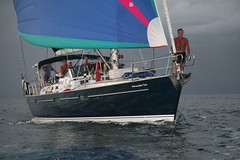
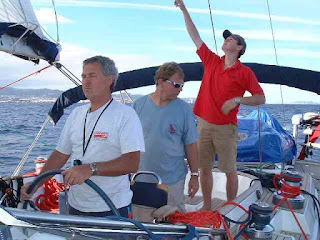 Dear Mrs. Mallet,
Dear Mrs. Mallet,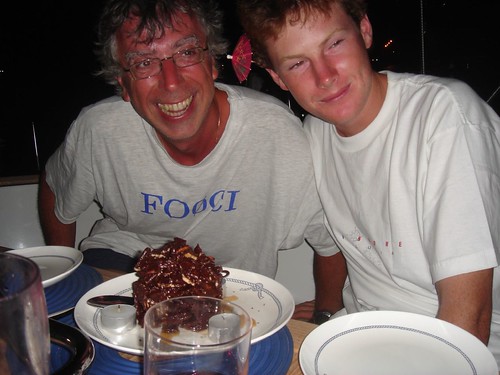
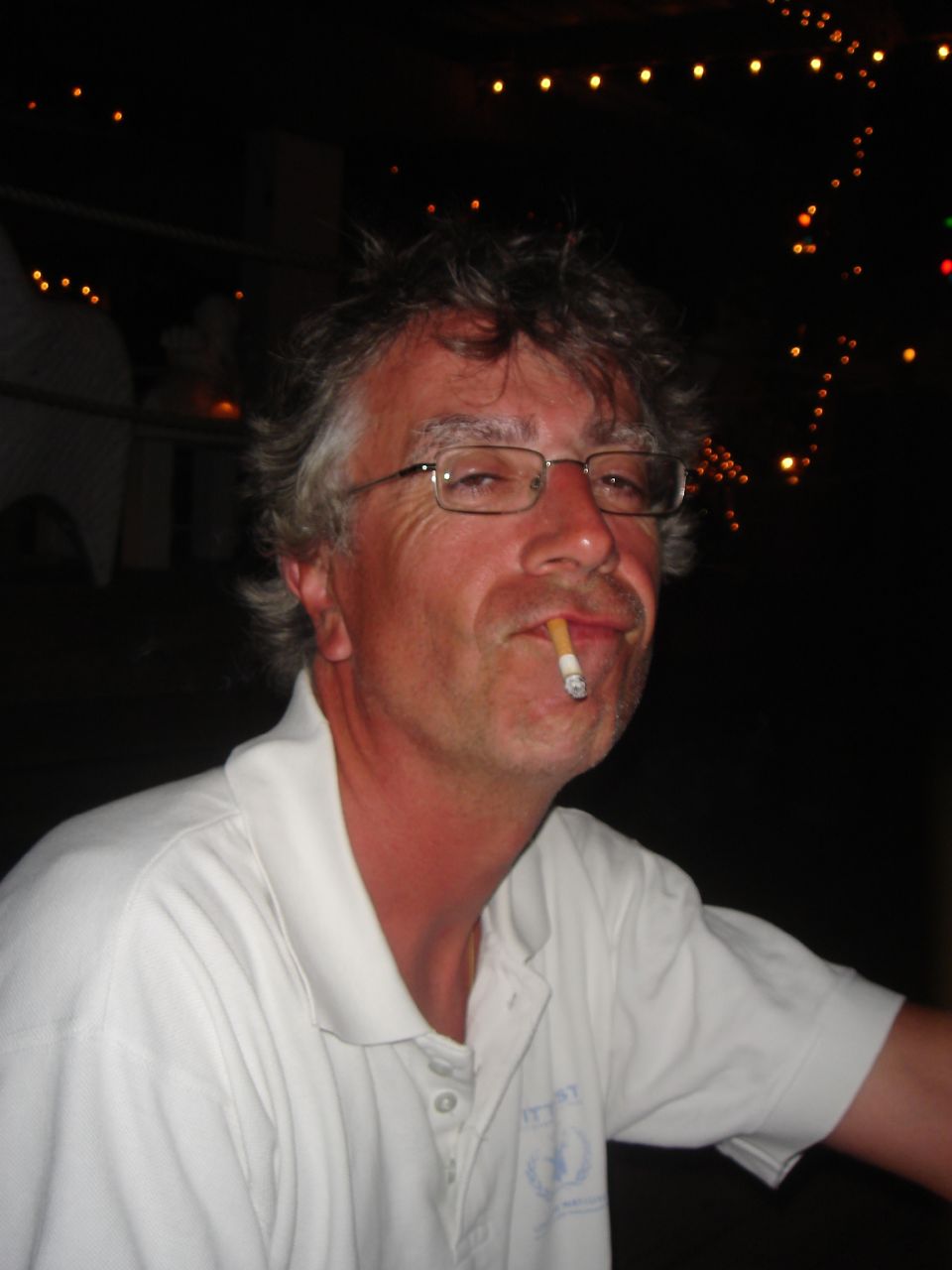
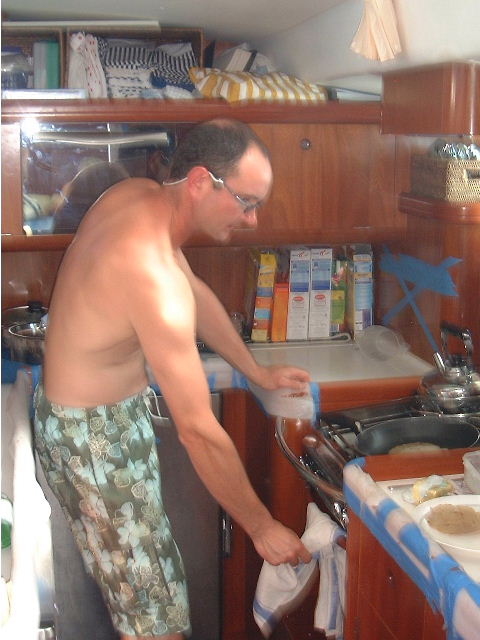
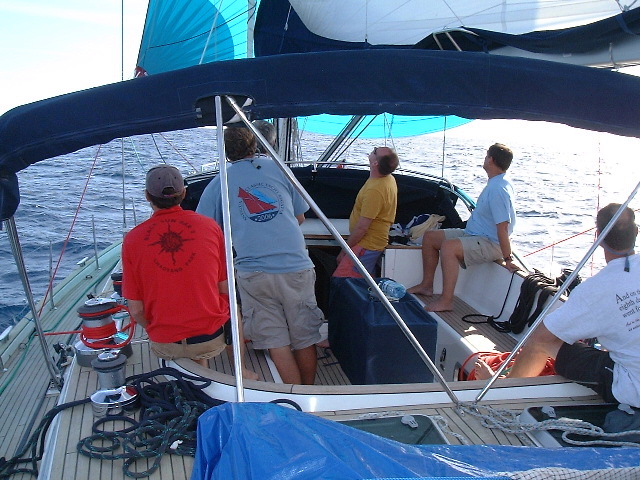














 Peter. Flemish, European, aid worker, expeditioner, sailor, traveller, husband, father, friend, nutcase. Not necessarily in that order.
Peter. Flemish, European, aid worker, expeditioner, sailor, traveller, husband, father, friend, nutcase. Not necessarily in that order.
The Road's Dashboard
Log in
New
Edit
Customize
Dashboard